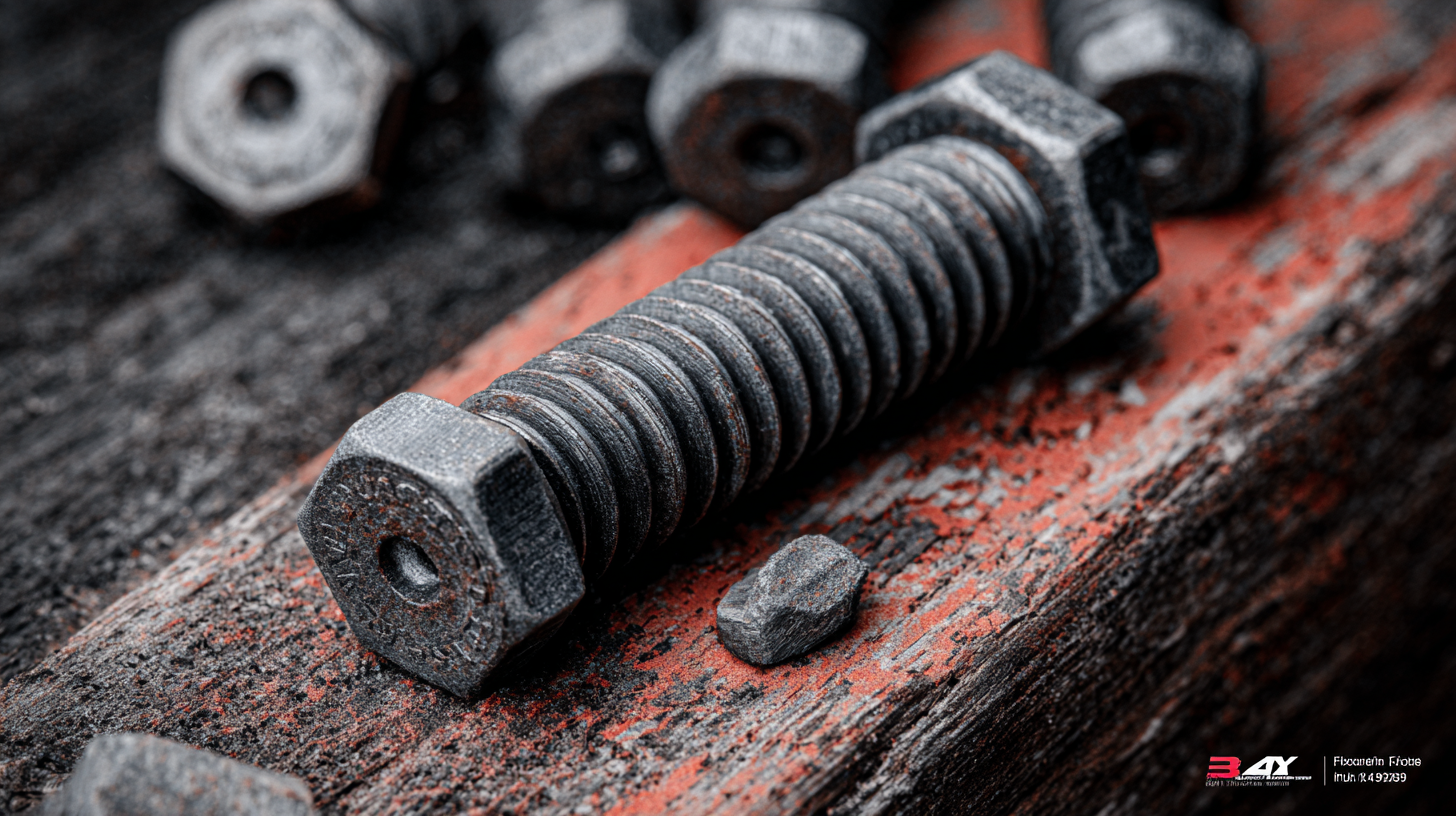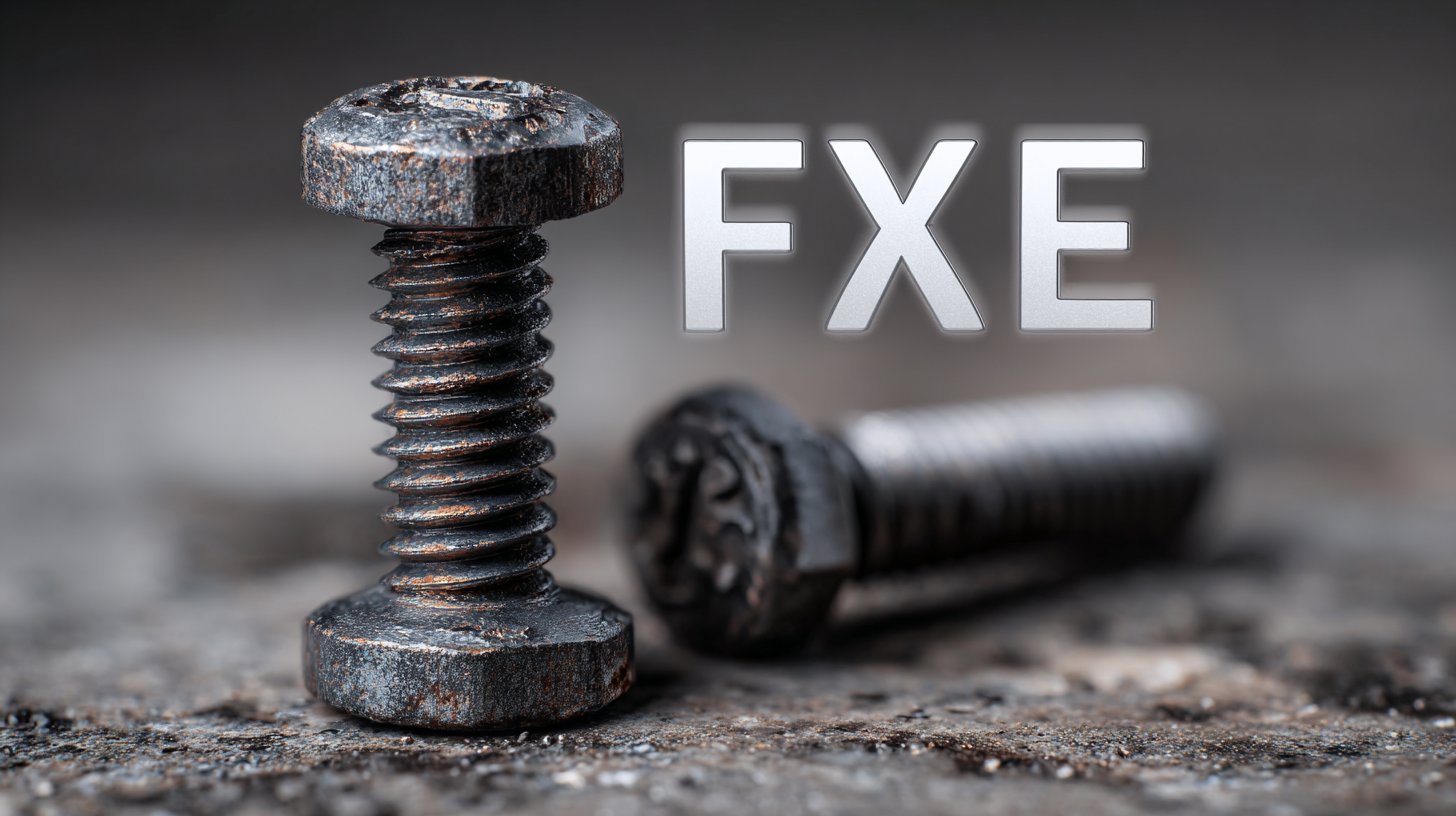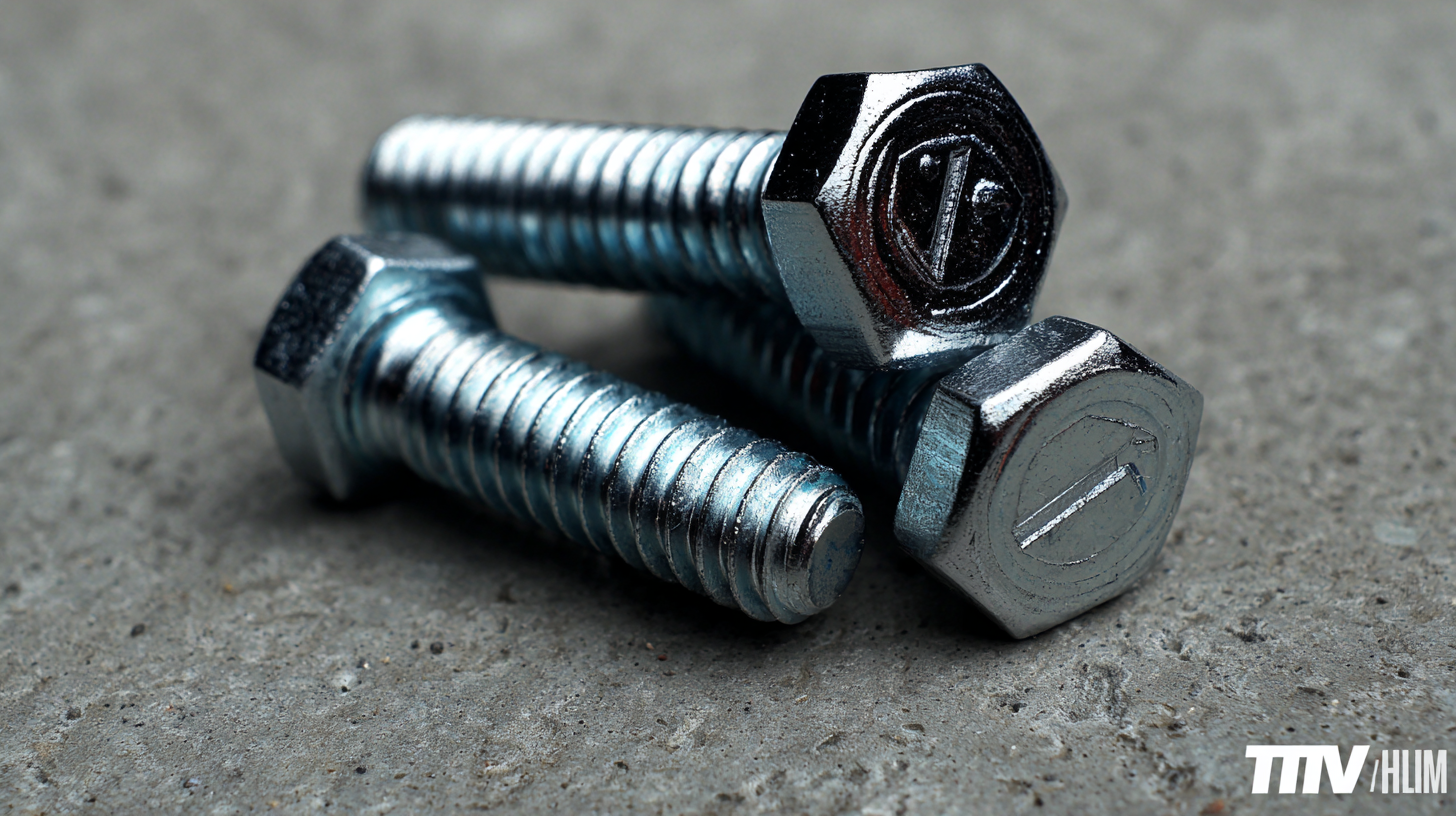In today's fast-paced manufacturing environment, the choice of fasteners can significantly impact the quality and efficiency of projects. The hex head screw, a staple in various industries due to its robust design and ease of installation, plays a crucial role in ensuring structural integrity and reliability. According to a recent report by Freedonia Group, the global demand for fasteners is projected to reach $113 billion by 2024, with hex head screws being among the most sought-after types due to their versatility and strength. As manufacturers and builders increasingly prioritize factors such as durability, corrosion resistance, and cost-effectiveness, understanding how to select the right hex head screw becomes essential for achieving the desired results in any project. This blog will outline seven essential tips to guide you in making informed decisions when choosing hex head screws, ensuring that your projects are executed with precision and excellence.

Hex head screws play a critical role in project design, primarily due to their versatility and strength. Whether you are working on wood, metal, or concrete projects, the unique design of hex head screws allows for better torque application and a secure grip, minimizing the risk of stripping or loosening over time. This makes them an essential component in any builder's toolkit, promoting durability and reliability in your projects.
When choosing the right hex head screw, consider the material you will be working with. Using screws made from corrosion-resistant materials, such as stainless steel or coated options, is crucial for longevity, especially in outdoor or high-moisture environments. Also, pay attention to the screw's length and diameter; selecting the appropriate size can prevent damage to the materials being joined.
Lastly, ensure compatibility with your tools. A hex head screw requires a specific type of tool for installation, so always verify that you have the correct wrench or socket on hand. This simple check can save you time and frustration while ensuring that your projects proceed smoothly and efficiently.
When selecting a quality manufacturer for hex head screws, it's essential to consider several key factors that can significantly impact the performance and reliability of your projects. According to industry reports, the global market for machine vision is anticipated to grow from $11.61 billion in 2024 to $22.59 billion by 2032, with a compound annual growth rate (CAGR) of 8.7%. This growth emphasizes the increasing demand for high precision and quality components, as businesses seek to optimize their production efficiency.
A crucial element when choosing a manufacturer is the evaluation of their supply chain optimization practices. Effective supply chain management is vital for manufacturers, informing decisions from product design all the way through to distribution. Reports indicate that strategic measures to reduce supply chain disruptions can greatly enhance operational performance. By ensuring that the manufacturer adopts robust supply chain strategies, you reduce the risk of delays and maintain product quality, which is essential for success in industries experiencing rapid growth and evolving technology needs.

By prioritizing these factors, businesses can ensure they partner with a manufacturer that not only meets their needs but also supports their long-term success in an evolving market.
When selecting the best hex head screws for your project, it’s crucial to understand the different materials available—primarily steel, stainless steel, and brass—each offering unique benefits suited to specific applications. Steel screws, for example, are known for their strength and durability. According to market research, the demand for steel fasteners is expected to increase significantly, especially in fields such as automotive manufacturing where reliability under stress is paramount.
Stainless steel screws, on the other hand, showcase remarkable resistance to corrosion and rust, making them ideal for outdoor applications or environments exposed to moisture. The automotive industry is particularly interested in these properties, as advancements in fastening technology are pivotal for ensuring long-lasting performance in vehicles. Recent analyses indicate that the automotive fasteners market is poised to grow, driven by innovations that enhance application efficiency and reduce costs.
Brass screws, while not as commonly used as steel or stainless steel, are favored in specific scenarios due to their aesthetic appeal and resistance to corrosion in less demanding environments. Understanding these material characteristics is essential not only for achieving project longevity but also for adhering to industry standards that assure safety and performance.
When selecting hex head screws for your projects, evaluating their performance in terms of load capacity and corrosion resistance is critical. Recent studies highlight the significance of corrosion resistance in various applications. For instance, researchers have explored the corrosion behavior of ultrafine-grained TiMoNb alloy used in dental implants, underscoring the importance of biocompatibility in conjunction with corrosion resistance. In environments where moisture and corrosive elements are prevalent, materials must withstand the detrimental effects of corrosion to maintain structural integrity and functionality.

Additionally, the impact of cyclic moisture changes has been evaluated regarding the withdrawal capacity and corrosion of zinc electroplated self-tapping screws. This study found that both yellow-zinc and nickel-zinc coatings experience corrosion under wet-dry cycles, which significantly affects their performance longevity. Such findings emphasize the necessity for selecting screws that are not only capable of bearing loads but are also protected against corrosive factors, ensuring durable and reliable use in demanding conditions. As projects often span various environmental challenges, incorporating screws with proven corrosion resistance is essential for reducing maintenance and enhancing overall project longevity.
When sourcing hex head screws for your projects, manufacturer credibility should be a top priority. According to a report by Research and Markets, the global fastener market is projected to reach USD 102.5 billion by 2026, highlighting the importance of selecting a reliable supplier in a competitive landscape. A credible manufacturer is not only more likely to provide high-quality materials, but they also tend to have better customer service and transparency about their sourcing processes.
To verify a manufacturer's credibility, consider reviewing their certifications and quality standards. For instance, manufacturers that comply with ISO 9001 are recognized for maintaining a consistent level of quality control. Furthermore, look for customer testimonials and case studies that illustrate their reliability and performance in various applications. As the industry increasingly values sustainability, manufacturers that prioritize eco-friendly practices may also stand out, aligning with a growing demand for responsible sourcing in engineering and construction projects.
This chart illustrates the popularity and durability ratings of different materials used for hex head screws based on recent industry data.
